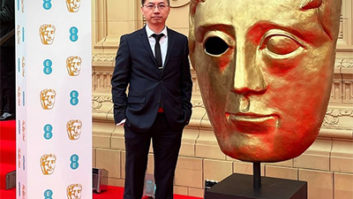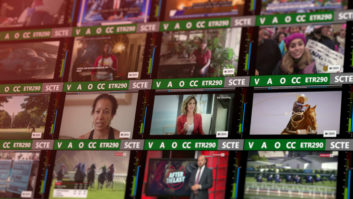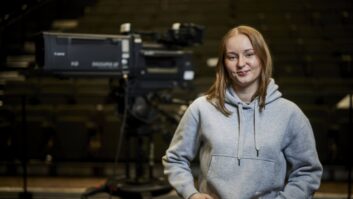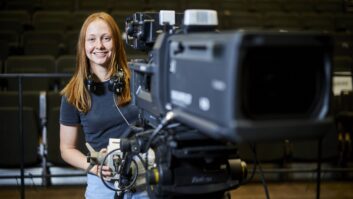Pat Bell, edit assistant, The Finish Line
Talk us through an average day in your role
My role is to support the offline and online talent, to make sure they have everything they need to do their best work. When the offline editor is cutting an episode, a typical day would be handling all of the footage that was shot by production, so it is available to the editor in a very logical and clear structure. The better your organisation of the project, the easier it is for the editor to just concentrate on telling a great story. Once the finishing artist is ready to take over, I conform the project into a format that they need to work on to finish the picture. They need to be able to tweak the finest details in making the pictures look the best they can be, so this involves relinking back to the large raw rushes that came to us initially.

Organisation and tracking your work is a big part of the day – we deal with very large amounts of media, so keeping consistent organisation across the workflow means the project can pass along each stage seamlessly. A typical day is always being ready to learn a new piece of software or tool that will enable you to be as useful as you can to the team.
How did you get started in the media industry?
I found a role on a Facebook group for people looking for work as runners in TV. I didn’t know anyone in the industry so being able to learn from others in an online community helped me to figure out how you could get a foot in the door. The runner role was a perfect way for me to learn – I got to follow a project from the dailies coming through the door in hard drives, to it being cut in the offline, to the colour and sound. Being able to be in the building with the different professionals working at each stage simultaneously meant I could get a sense of how interconnected everybody’s work is. The job itself is making tea and coffee and running out to buy more beer for the fridge, so do be prepared to put in a lot of effort at the outset, but if you show a willingness to learn, people are happy to help and show you the ropes.
What training did you have before entering the industry?
I had no formal training and no university background in Film/TV, so I relied on the internet to learn about what post production was and how you could make a career in the industry. I had made my own films in the past and had loved editing them, just getting lost for hours in making a story emerge from what I had shot – I found that Avid was a major piece of editing software in the industry so I downloaded the free Media Composer First to my computer and started learning. Most of my initial learning came from shooting footage on my own camera and getting frustrated at the images not looking how I would like and having to Google the sometimes baffling language of digital video. Then YouTube was a fantastic route for learning about the basics of the technology involved.
Why do you enjoy working in the industry?:
The post production industry is a great mix of technology and creativity. You’re working with software and technology that is evolving every day so there’s always more to learn, but you’re also able to watch talented people’s creative work transform the footage we receive. Fundamentally, it’s really rewarding knowing that you are working on something that will hopefully entertain someone and give them joy.
What piece of advice would you offer someone looking to explore a role similar to yours?
The best way to learn is by doing – download some free software and start breaking and fixing things. The fundamentals you need to know will be free or affordable. Try and connect with other people in your situation online and learn how they got on. It can be overwhelming seeing all there is to learn. Just take it one step at a time. Screenskills, Workflow Guide by Frame.io, and YouTube channels like FilmmakerIQ are also great. The industry can seem very intimidating to someone just starting out, but if you are honest about how much you know and how much you want to learn, people are happy to help you.







